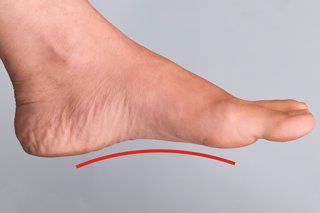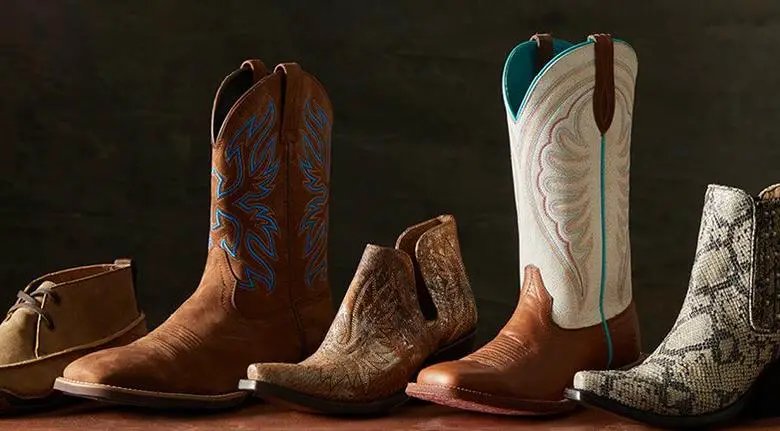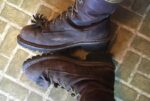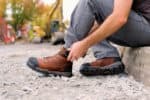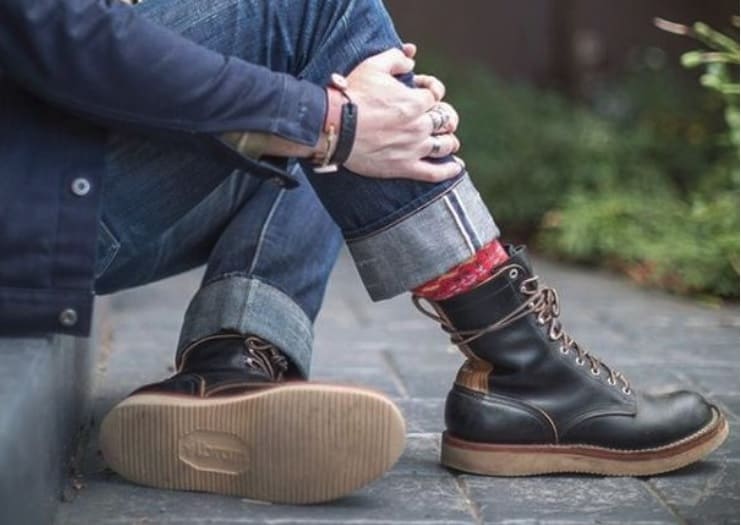 I am sure you all are well versed with the qualities that every work boot possesses. These utility models have the advantages of being good abrasion resistant, anti slip, elastic, soft, stable, durable, flexible, waterproof and what not. I agree that your work boot plays a vital role in your job but have you ever thought about the disadvantages that come along with them? Are your work boots causing harm to your feet?
I am sure you all are well versed with the qualities that every work boot possesses. These utility models have the advantages of being good abrasion resistant, anti slip, elastic, soft, stable, durable, flexible, waterproof and what not. I agree that your work boot plays a vital role in your job but have you ever thought about the disadvantages that come along with them? Are your work boots causing harm to your feet?
The short answer is NO. Work boots are your best partner in work but the only condition is, you have to pick the right kind of boots that suit you and your work. Your boots act just like a tool that is suited only for a particular type of job. If you’ll use it at a place where it is least valuable, you will either hurt yourself or your work might remain unfinished. Same goes with your boots.
Read the guide on mistakes to avoid while buying work boots.
So, how can work boots be inimical to your feet? Let’s get detailed information about that. I’ll also tell you how work boots are truly helpful and what are the features of a suitable work boot.
What Makes a Good Work Boot?
Not sure what to look for in work boots? I am going to help you with these points:
1.) Arch Support is important in work boots
Most work boots don’t have proper work boots that are critical to support the shape of the arch of your foot. Without that, your arch will collapse making your foot roll out flat stretching your ligaments, nerves and muscles of the foot beyond a normal limit.
This over pronation can be a leading cause of plantar fasciitis which is seen as one of the most common foot injuries. Commonly known as a policeman’s heel it can seriously be painful for your arch.
Remedy? Just get a proper one which can reveal the shape of your arches and help you figure out what kind of arch support you actually need?
2.) Always look for height of work boots
You might be unaware of the fact that a raised heel makes your hips shift forward along with your center of gravity. This affects your calf muscles making them contract to adjust to the new foot position. Not just this, your Achilles tendon tightens as well and your weight which was earlier well distributed is now mostly on the ball of the foot.
These things can put additional strain on your foot, knee and even your back leading to numbness and pain in these parts. You become more prone to ankle injury and falls. Therefore, it is always advised to go with traditional boot heels.
3.) Toe to toe with work boots
Another very important aspect to be kept in mind while purchasing work boots is to look for toe boxes. You cannot overlook this area as too short a toe box can cause your toes to crimp commonly causing hammer toes. Chafing, corns and other foot pain are the frequent problems associated with a toe box that is shorter lengthwise.
To avoid such situations always make sure you try the boots with your socks on and try a number of boots until you find them secure and comfortable.
Foot pain from Work Boots
Work boots are designed to protect your feet from occupational hazards and that is why these are reinforced with heavy tips that promise to shield against any kind of potential damage to the toes and feet.
These commonly available work boots are sometimes inadequate footwear for long term and are often seen as a culprit for developing pain and discomfort in the heel. If you wear your heavy work boots for quite a long time, chances are that you might experience pain and discomfort along with formation of painful bone growths like heel spurs.
These conditions are the direct result of overloading of the feet which occurs due to excessive strain. It is often seen that work boots encourage unhealthy proprioception that puts unnatural and unnecessary pressure on the feet and the joints restricting their natural movement.
In the long run the rigid and solid material which are meant to save you from work-related accidents by limiting your freedom of movement can cause persistent sharp pain and discomfort. Always keep in mind that the stress on the feet is proportional to the progression of these conditions. The more intense the physical labor in uncomfortable boots, the higher the chances of progressing degeneration.
Work Boots and Fatigue
While the average person may walk 10,000 steps a day, you have to walk more than 30,000 at your workplace. Fighting fatigue becomes a very important task for you and for this you have to select the right work boot.
One of the main factors to be considered is the overall weight of the boot. Logically, the weight impacts fatigue on the feet and legs. Heavier boots tend to fatigue feet and legs more than lighter boots.
Next is the overall balance of a boot from heel to toe. Boots with a heavy toe can give you shin splints and sore shins which accelerate fatigue in the leg muscles. This soreness becomes cyclical and results in more fatigue and can cause serious injuries.
A very common misconception is extremely cushy soles can enhance comfort but let me just bust this. Cushy soles may be ideal for people who are stationary for long periods but for others who are in constant motion, these same boots are not very effective in fighting fatigue in fact it can increase it.
Benefits of Wearing Boots at Workplace
The top 4 key benefits of wearing safety shoe at workplace are:
1.) Prevention from slip and falls: Safety work boots are designed to give additional protection against trips, falls and slips as they have good amounts of traction which help in reducing friction.
2.) Protection against burns: Burns from chemicals and materials like cement are quite common. To save you from these burns, safety footwear made of sturdy, durable material can prevent nasty burns from chemical splashes, metal splashes that could injure your feet.
3.) Keeping feet warm in extreme weather: Working in outer environments can be really tough and can pave the way to injuries such as frost bites and hypothermia. But you can avoid these by wearing insulated work boots which keep your feet warm and comfortable.
4.) Resist fatigue: fatigue can stop you from giving your best performance especially on hard surfaces like concrete. Work boots not only provide a comfortable cushioning but also a balanced arch support preventing any unnecessary strain on muscles.
Final Thoughts
Every particular thing has got some disadvantages along with some benefits. Work boots play an essential role in your workwear and are quite important in saving your feet from all types of hazards.
Work boots are not harmful but can turn out to be a bit detrimental to your feet only if you choose the wrong work boots. So choose the right work boots and forget every kind of problems by keeping your best foot forward.


